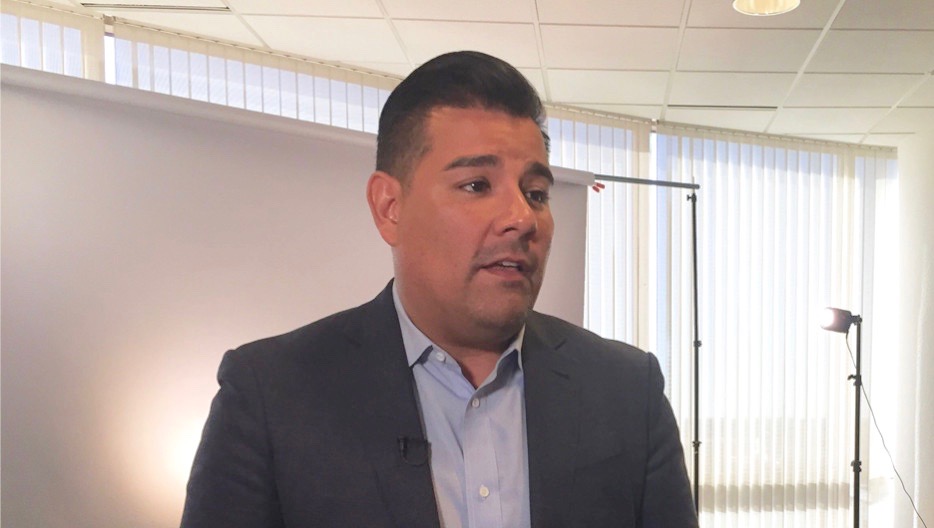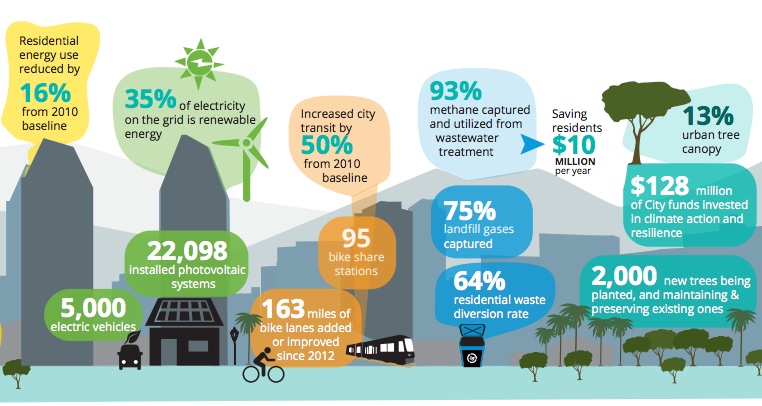Daily Business Report-Aug. 30, 2019
Factory worker. (Photo: Laura Musikanski at Morguefile.com)
California Labor Day Briefing
Highlights for 2019
California’s employment expansion is now 113 months long, tying the expansion of the 1960s as the longest on record and pushing unemployment to another historic low.
California’s seasonally adjusted unemployment rate was 4.1 percent in July 2019, tying the record low unemployment rate first set in July through December 2018.
There were 804,000 unemployed Californians in July 2019. This was a decrease of 1,450,000 persons from the recessionary peak in October 2010.
California has enjoyed broad-based industry sector job growth over the course of its employment expansion, including the last year.
California gained a total of 3,299,000 nonfarm jobs over the 113 months of expansion from February 2010 through July 2019.
Two California industry sectors added more than 650,000 jobs each from the February 2010 through July 2019 period: educational and health services (703,500) and professional and business services (688,000).
On a percentage basis, construction (58.4 percent) has been the fastest growing industry sector, followed by leisure and hospitality (36.7 percent), professional and business services (33.5 percent), educational and health services (33.3 percent), and information (29.5 percent).
Job projections in California
California’s total employment is projected to increase by 3.2 percent (612,000 jobs) between the second quarter of 2018 and the second quarter of 2020, reaching nearly 19.5 million jobs. The occupational groups with the most projected growth are personal care and service (79,100), food preparation and serving related (62,400), and construction and extraction (56,000).
Total job openings are projected to be 4.8 million over the same time period, including the creation of new jobs and positions vacated by workers leaving the labor force or making career changes.
____________________

240-unit Sunterra Apartments sold
to joint venture for $66.25 million
CBRE announced the sale of Sunterra Apartments, an apartment property in Oceanside, to a Joint Venture between IDEAL Capital Group, a real estate investment group based in Clovis, Calif., and Aegon Real Assets US, a division of Aegon NV, a multinational life insurance, pensions and asset management company headquartered in the Netherlands, for $66.25 million.
Located at 3851 Sherbourne Drive, the property features 240 units with a mix of two-bedroom apartments. Community amenities include a pool, children’s wading pool, built-in fire pits and barbeques, large common areas, security gates, and a fitness center.
CBRE’s Dean Zander, Stewart Weston, John Montakab, and Kevin Mulhern represented the seller, a private investment group.
____________________

Promex Industries pays $4.05 million
for Escondido industrial building
Santa Clara-ased manufacturer Promex Industries paid $4.05 million for a 20,783-square-foot industrial building in Escondido that it will use for its San Diego regional operations. The building is at 2063 Wineridge Place. The seller was 4S Properties / Saddleback Associates.
Originally developed as a build-to-suit for a local manufacturing company in 2000, the seller planned to lease the property upon it becoming vacant.
JLL’s North San Diego County team represented the seller. The buyer was represented by Colliers International.
____________________
Connect awards $65,000 in CASCADE
subgrants to local entrepreneurs
Connect with San Diego Venture Group (SDVG) announced that it will award a total of $65,000 in subgrants to be shared across six San Diego companies. The funding is provided through a grant from the California Advanced Supply Chain Analysis and Diversification Effort (CASCADE), an initiative of the California Governor’s Office of Business and Economic Development (GO-Biz)
The recipients:
Hydrostasis, founded by Dr. Debbie Chen, is a wearable tech company establishing hydration monitoring as a standard of care.
MedCrypt, with CEO Mike Kijewski, provides proactive health care security in a few lines of code.
Nanome Inc., co-founded by Steven McCloskey, while a student at UCSD, is an intuitive, state-of-the-art VR platform for viewing, manipulating, and modifying chemical and macromolecular structures in a fully immersive and collaborative 3D environment.
Navega Therapeutics, founded by Ana Maria Moreno, is tackling the opioid epidemic with a non-permanent gene therapy to target pain that is non-addictive, highly specific, and long lasting.
Qubitekk, with CEO Stan Ellis, provides state-of-the-art cybersecurity protection for critical energy, 5G telecommunications, and military applications for critical infrastructure using an unbreakable physics-based solution.
Uprise Energy, co-founded by Jonathan Knight, is focused on developing out-of-the-box energy and efficiency solutions for some of the world’s most pressing challenges.
____________________

County adds sites, faster tests
to check beach water quality
This Labor Day weekend, local beachgoers can feel more confident about frolicking in the ocean, thanks to a couple of enhancements to the county’s beach water testing program, according to a county news release.
San Diego County’s Department of Environmental Health (DEH) now has a testing tool that allows officials to alert beachgoers faster than ever before when the water is not safe due to potentially harmful levels of bacteria. The tool, implemented countywide at the beginning of summer, is the fastest standard test approved by the state.
“This testing method allows us to confirm dangerous bacteria levels within 24 hours, when before it took between two and four days for test results to come back,” said Lars Seifert, Land and Water Quality Division Chief for the county’s Department of Environmental Health. “The test also enables us to lift beach closures a lot faster once sample results confirm the water is meeting state health standards.”
In addition to speeding up the process, DEH has also expanded its testing locations in the South County. This summer, the county’s beach water quality program is sampling water quality along southern beaches at nine locations, compared to four locations in previous years.
____________________
Solana Beach approves county’s most
restrictive plastic pollution reduction law
The city of Solana Beach on Wednesday introduced the most comprehensive and restrictive plastic pollution ordinance in San Diego County. In a unanimous vote, the City Council moved to expand the polystyrene ban to include additional restrictions on the use and distribution of single use plastic food service ware items, and beverage bottles.
Solana Beach’s ordinance prohibits the use and sale of food service ware by any establishment in the city if the food service ware is not recyclable or compostable. It disallows the use or sale by any establishment in the city of single-use straws, utensils, stirrers, splash sticks, cocktail sticks or toothpicks made with plastic.
The ordinance stipulates a requirement that food vendors distribute those non-plastic common single-use food accessory items only upon request by the customer and that they must be recyclable or compostable. It also prohibits the sale and use of polystyrene products which are not encased in a harder plastic like foam coolers.
____________________
Thrive Real Estate changes from independent to Compass affiliate
Thrive Real Estate, an independent real estate brokerage in the East County, has announced it is now affiliated with Compass Inc., one of the fastest growing real estate brokerages in the U.S. The local Thrive brokerage, which opened in November 2017, will now be called Compass La Mesa effective immediately, according to Lisa and Sean Purcell, broker-owners. The new Compass office will remain at the current Thrive location of 8693 La Mesa Blvd., Suite B, La Mesa.
Based in New York City, Compass Inc. has more than 165 offices with over 7,000 agents in 13 states and over 1,000 employees. The company is known for its cutting-edge technology. Compass has a proprietary mobile app for real estate agents plus a “smart” for-sale sign which provides detailed, custom information to potential buyers on their smart phone.
____________________

Commentary
Reverting to an appointed insurance
commissioner would hurt consumers
By Harvey Rosenfield, Special to CalMatters

Where the troubling trail of accusations dogging Insurance Commissioner Ricardo Lara will lead is hard to tell. State records show that insurance industry executives and their relatives gave tens of thousands of dollars to Lara’s campaign committee–even as he intervened on their behalf in cases before his agency.
We’ll know more on Aug. 31. That’s when Lara has promised to make public his communications and calendars of meetings with the executives.
Whatever happens then, one principle is clear: the public’s ability to hold the Insurance Commissioner accountable at the ballot box—a reform adopted by California voters in 1988 by an initiative I wrote—remains their best protection against a wayward regulator.
We learned that lesson the hard way. When insurance commissioners were appointed by governors, skyrocketing insurance premiums for auto, home and even medical malpractice coverage routinely destabilized the economy.
In the 1980s, the Legislature required Californians to buy auto insurance, and young African American and Latino men were charged thousands of dollars for coverage that they could not afford.
Then Gov. George Deukmejian and his appointed commissioner stood by and did nothing while the insurance companies feasted on our flesh, immune from regulation, civil rights and antitrust lawsuits or any other form of accountability for their behavior.
In 1988, voters took matters into their own hands and enacted a series of powerful consumer protections against excessive insurance rates and abusive practices. To force the insurance companies to obey these unprecedented reforms, the initiative made the insurance commissioner an elected position, providing aspiring politicians a powerful incentive to enforce the laws, and, if they did that job well, a platform for higher office.
Mandating political accountability worked. Under elected insurance commissioners, California’s auto insurance rates have actually dropped over the last 30 years. By contrast, states across America saw liability premiums rise by an average of 58%.
The Consumer Federation of America reported in 2018 that California drivers alone have saved $150 billion on their auto insurance bills since 1989. Only 11 states have appointed insurance commissioners.
The first elected Insurance Commissioner, Congressman John Garamendi, established a tradition: He vowed never to take money from the companies he regulated. Only two insurance commissioners have violated this unwritten rule.
Twenty years ago, Chuck Quackenbush created an off the books slush fund with insurance company money, in exchange for favorable treatment for companies accused of stiffing policyholders on Northridge earthquake claims.
Facing impeachment and possible prosecution, Quackenbush resigned in 2000. Once described as a promising candidate for statewide office, Quackenbush moved to Florida where he became a police officer.
Unlike Quackenbush, who made his public hostility to 103’s reforms a fundraising tool, newly elected Insurance Commissioner Lara has presented himself as a progressive with a pro-consumer agenda.
That makes all the more jarring his comments during a closed-door conference with insurance industry lawyers and lobbyists last month: he criticized Proposition 103’s protections and said he was ready to “get creative, just like all of you have been for so many years.”
Allegations that Lara used his office to reward donors raise serious legal questions that he will have to answer completely and quickly. Pandering to a bunch of industry executives at a luncheon isn’t unlawful but it is troubling.
Either way, Commissioner Lara knows the punishment for protecting insurance companies at the expense of consumers: exile from public life.
Some pundits argue that Lara’s conduct is the fault of the voters for politicizing the office. But going back to the system in which the insurance commissioner is appointed would only please the powerful insurance lobby, and it would disenfranchise Californians of one of their most successful powers: the ability to elect the person who protects their checkbooks.
Harvey Rosenfield is the author of Proposition 103 and founder of Consumer Watchdog, harvey@consumerwatchdog.org. He wrote this commentary for CalMatters.



